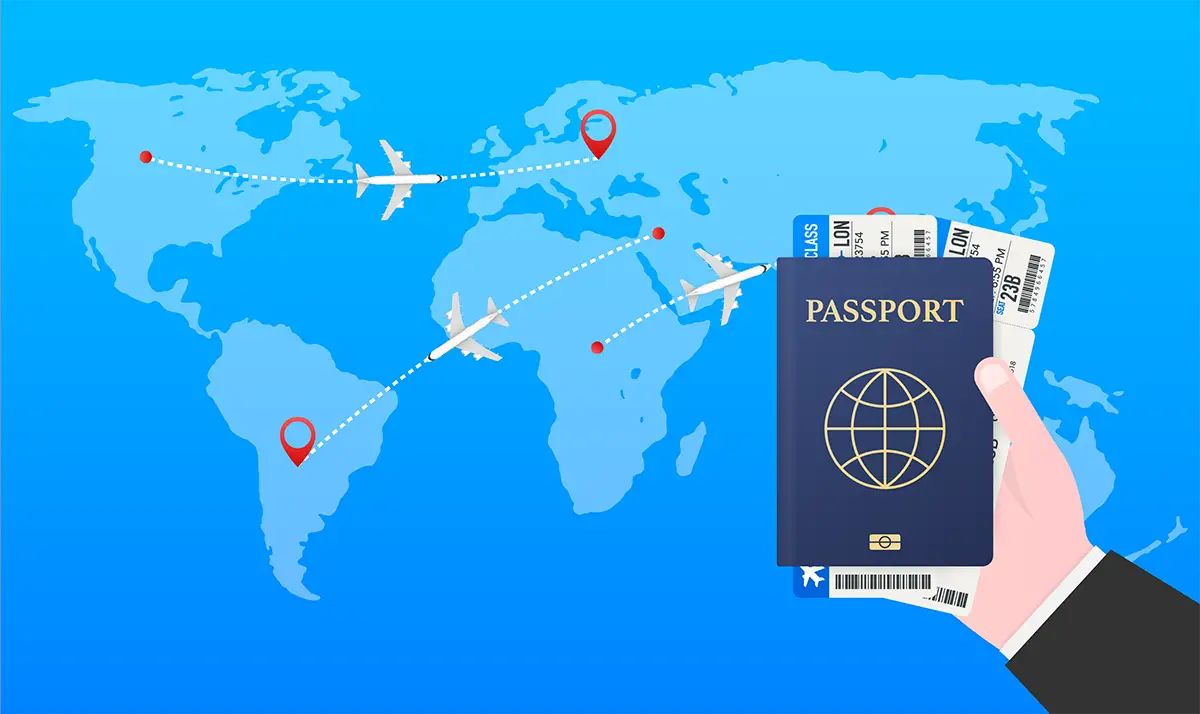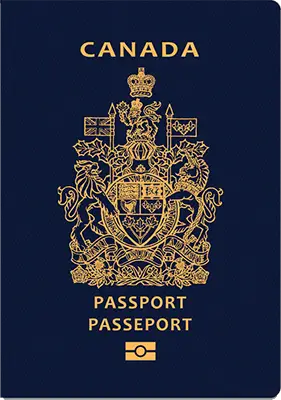Find Out If You're Eligible Canadian Citizenship Today
Canadian Citizenship: Find Out if You’re Eligible is a crucial step for individuals who wish to call Canada their permanent home. In this guide, we will examine the criteria and procedures for obtaining Canadian citizenship so that you can ascertain if you meet them and understand how to gain citizenship. By understanding these aspects, you can determine whether you meet the criteria and learn how to navigate your path toward becoming a proud Canadian citizen.
We begin by discussing essential eligibility requirements such as age, residency, language proficiency, and knowledge of Canada. Next, we delve into the application process – including required documents and forms, processing times, and fees associated with applying for citizenship.
Moving forward, our focus shifts to the Canadian Citizenship Test – what it entails, how best to prepare for it, and tips on taking it successfully. Once you have passed this milestone in your journey toward Canadian Citizenship: Find Out if You’re Eligible,
Table of Contents:
- Eligibility Requirements
- Applying for Canadian Citizenship
- Taking the Canadian Citizenship Test
- After You Pass the Test
- Other Considerations for Becoming a Citizen of Canada
- FAQs
Eligibility Requirements
Applicants must meet specific criteria, including age and residency requirements, to be eligible for Canadian citizenship. Age is the first requirement; applicants must be at least 18 to apply for citizenship. In addition, residency requirements must also be met; applicants must have lived in Canada as a permanent resident for at least three out of the past five years before applying.

To be eligible for Canadian citizenship, language proficiency is a critical component that must be demonstrated through an approved language test. Applicants must prove their knowledge of either English or French by completing a sanctioned language examination.
Finally, all applicants will need to prove their knowledge of Canada by taking the Citizenship Test, which covers topics such as the government and history of Canada, the rights and responsibilities of citizens, and symbols associated with Canada, like its national anthem and flag. The application form should be submitted before taking the Citizenship Test, so it’s wise not to postpone this part. With some careful preparation, though, passing this test should be achievable – after all, it is just common sense about our great nation.
To summarize, it is essential to be familiar with the criteria for Canadian citizenship before applying. Applying for Canadian citizenship requires a few steps and understanding what documents are needed and associated fees and processing times.
Applying for Canadian Citizenship
To become a Canadian citizen, you must meet certain eligibility criteria, such as age and residency, and pass the Canadian Citizenship Test. You must also demonstrate knowledge of Canada by taking the Canadian Citizenship Test. You must submit a completed form with all necessary documents and fees to initiate the application process.
The Application Process Overview includes filling out an online or paper application form, submitting supporting documents, paying processing fees, and providing biometrics if necessary. Submission of applications is analyzed by IRCC (Immigration, Refugees & Citizenship Canada). Timeframes for completion of applications may differ depending on the kind being submitted but generally take between one and two years from start to finish.
You’ll need to provide evidence of your identity, such as a passport or birth certificate; proof of residence in Canada, like tax returns; language test results; police certificates from any countries you’ve called home for at least six months since turning 18 years old; two identical photos taken within the last six months according to IRCC’s specifications; and other forms based on your circumstances, including marriage status documents or divorce papers if applicable. To start your application process, ensure all necessary documentation, along with processing fees, are present and accounted for before submitting it.
Processing times and fees depend on which type of application you make: adult grant (18+), minor grant (under 18), or renunciation/resumption/retention ($100). Adult grants usually take 12-20 months, while minors may be processed faster due to their special circumstances. There is also a Right Of Citizenship Fee ($630) payable upon approval before receiving your Certificate of Canadian Citizenship at the Oath Ceremony after passing the test.
Applying for Canadian Citizenship necessitates the accurate completion of all applicable documents and forms before submission. Taking the Canadian citizenship test requires careful preparation to be successful.
Key Takeaway: Applying for Canadian citizenship requires meeting specific eligibility criteria and passing the Citizenship Test. Filling out the app form with relevant docs and paying fees are necessary to start – processing time is contingent on individual conditions, taking 12-20 months. Once approved, a Right Of Citizenship Fee ($630) is payable before receiving your Certificate of Canadian Citizenship at the Oath Ceremony after passing the test.
Taking the Canadian Citizenship Test
 The Canadian Citizenship Exam is an essential part of the pathway to citizenship in Canada, requiring one to demonstrate familiarity with the nation’s history, politics, and culture by answering relevant questions. It assesses your knowledge of Canadian history, politics, and culture. To succeed on the Canadian Citizenship Test, it is necessary to show comprehension of Canada’s history, politics, and culture and correctly respond to related queries. Here’s what you need to know about taking the test.
The Canadian Citizenship Exam is an essential part of the pathway to citizenship in Canada, requiring one to demonstrate familiarity with the nation’s history, politics, and culture by answering relevant questions. It assesses your knowledge of Canadian history, politics, and culture. To succeed on the Canadian Citizenship Test, it is necessary to show comprehension of Canada’s history, politics, and culture and correctly respond to related queries. Here’s what you need to know about taking the test.
What is the Test? The Canadian Citizenship Test consists of multiple-choice questions based on Discover Canada: The Rights and Responsibilities of Citizenship information, which can be found online or in print at any local library or bookstore. Questions cover topics such as government structure, political system, rights and freedoms in Canada, symbols associated with Canada (e.g., national anthem), geography (provinces/territories), economy (natural resources), etc. You’ll have a half-hour to finish the exam, which must be done in either English or French, depending on where it’s taken – whether at an assigned office or online via computer.
Preparing for the Test:
Before taking the test, you must study all relevant material to be well prepared when it comes time for your exam day. Many resources are available online, such as practice tests that can help familiarize yourself with possible questions that may appear during your exam day, including official sample tests provided by Immigration Refugees & Citizenship Canada (IRCC). Books such as “Canadian Citizen Prep” are also available, which provide helpful tips and strategies for studying effectively before sitting down for your exam day.
The Canadian Citizenship Test is an important part of becoming a citizen. After passing the test, you can look forward to attending your Oath of Citizenship Ceremony and receiving your Certificate of Canadian Citizenship.
Key Takeaway: The Canadian Citizenship Test is a multiple-choice exam to assess knowledge of Canada’s history, politics, and culture. It is essential to study the relevant material and familiarize yourself with possible questions before taking the test; many resources are available online, such as practice tests or books like “Canadian Citizen Prep” that can help you ace your citizenship test.
After You Pass the Test
Once you have passed the Canadian citizenship test, it is time to celebrate your accomplishment. Having passed the test, your next steps towards becoming a Canadian citizen are to attend an Oath of Citizenship Ceremony and receive your Certificate of Canadian Citizenship.
Oath of Citizenship Ceremony:
 The Oath of Citizenship ceremony is a formal event where individuals who have passed their tests pledge their loyalty and commitment to Canada. At the Oath of the Citizenship ceremony, applicants pledge to obey Canadian laws and fulfill their citizen obligations. This ceremony typically takes place at a local courthouse or other government building with several other new citizens present. At the gathering, IRCC reps may provide insight into how to be a conscientious citizen.
The Oath of Citizenship ceremony is a formal event where individuals who have passed their tests pledge their loyalty and commitment to Canada. At the Oath of the Citizenship ceremony, applicants pledge to obey Canadian laws and fulfill their citizen obligations. This ceremony typically takes place at a local courthouse or other government building with several other new citizens present. At the gathering, IRCC reps may provide insight into how to be a conscientious citizen.
After taking the oath during the ceremony, participants are officially granted citizenship status by IRCC officials, who then provide them with certificates confirming their new status as Canadians. The certificate provided upon oath-taking can be utilized to verify citizenship for activities such as procuring passports or entering certain nations that demand valid proof of citizenship before entry is permitted. You must keep your certificate safe since it serves as an official record documenting your successful completion of all requirements needed to become a full citizen in Canada.
Congratulations on passing the test. With your test success, you have taken a crucial stride towards achieving Canadian citizenship. Now, let’s look at other considerations for becoming an official citizen of Canada.
Other Considerations for Becoming a Citizen of Canada
Canadian citizens may possess dual nationality, enabling them to be a citizen of Canada and another nation concurrently. This benefits those with family ties or cultural roots in other countries but wishes to remain Canadian citizens. It’s important to note that each country has laws governing dual citizenship status. So, it’s best to check with both governments before assuming you can keep your current citizenship while obtaining another one.
As a Canadian citizen, you must utilize your liberties, such as voting in elections, accessing government-provided healthcare services, submitting applications for public sector jobs, and running for political office without fear of detention or deportation due to nationality. Along with these privileges come responsibilities, including respecting people from all backgrounds and religions; abiding by federal, provincial, and municipal laws; paying taxes promptly; attending jury duty if summoned; engaging actively in democratic processes like casting votes during elections; being prepared to defend Canada when necessary; safeguarding human rights vigorously; supporting charitable causes generously; regularly volunteering whenever feasible.
Key Takeaway: As a Canadian, you must utilize your privileges and obligations; for instance, casting ballots in elections or settling taxes on time. You must also safeguard human rights vigorously and be prepared to defend Canada if necessary; these privileges come with the ‘package’ of being a Canadian citizen.
FAQs
Am I automatically a Canadian citizen?
No, you are not automatically a Canadian citizen. To gain Canadian citizenship, applicants must fulfill certain criteria and pass the Citizenship Test. To be eligible for citizenship, applicants must have held permanent resident status in Canada for at least three out of the past five years and be 18 or older. In addition to meeting these requirements, applicants must demonstrate knowledge of Canada’s history, geography, government structure, and other topics by passing the Citizenship Test.
Who Cannot apply for citizenship in Canada?
Non-residents, those who do not meet the residency requirements, and minors cannot apply for Canadian citizenship. In addition, individuals with a criminal record or facing charges may be ineligible to become citizens. Furthermore, applicants must have sufficient knowledge of English or French and understand Canada’s rights and responsibilities before they can successfully obtain citizenship.
Can you get Canadian citizenship if your grandparents were Canadian?
No, you cannot get Canadian citizenship if your grandparents were Canadian. You must meet the requirements of the Citizenship Act and be a permanent resident of Canada to become a citizen. This includes being physically present in Canada for at least three out of five years before applying, having adequate knowledge of either English or French, and demonstrating an attachment to Canada through employment or study. In addition, applicants must pass the Canadian Citizenship Test, which covers topics related to Canadian history and government.
Can I become a Canadian citizen and keep my U.S. citizenship?
Obtaining Canadian citizenship is feasible while preserving one’s United States nationality. Citizenship at the same time. This process requires meeting certain criteria, such as being 18 or older, having lived in Canada for three out of the last five years, passing a language test, and knowing about Canada’s history, government, and culture through taking the Canadian Citizenship Test. Before applying for dual citizenship status, it is important to ensure that both countries recognize the concept.
Conclusion
Gaining Canadian citizenship is a thrilling and gratifying journey. Discovering if you meet the criteria for Canadian citizenship involves examining your eligibility, submitting an application, completing a test, and considering additional elements such as fluency in language or residency status. Taking advantage of practice tests and resources available online will help ensure that your application process goes smoothly so that you can begin enjoying all the benefits associated with being a proud Canadian.
Take the first step towards Canadian citizenship and test your knowledge with our free Canadian citizenship practice test.
Sources:
https://www.cic.gc.ca/english/helpcentre/answer.asp?qnum=355
https://www12.statcan.gc.ca/nhs-enm/2011/as-sa/99-010-x/99-010-x2011003_1-eng.cfm
